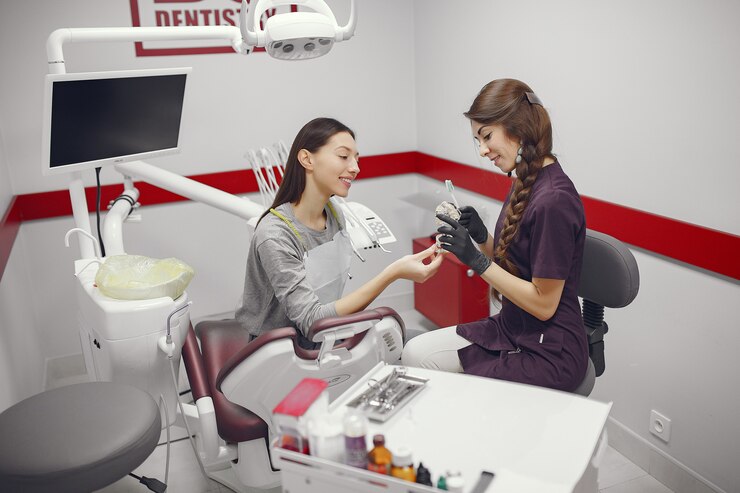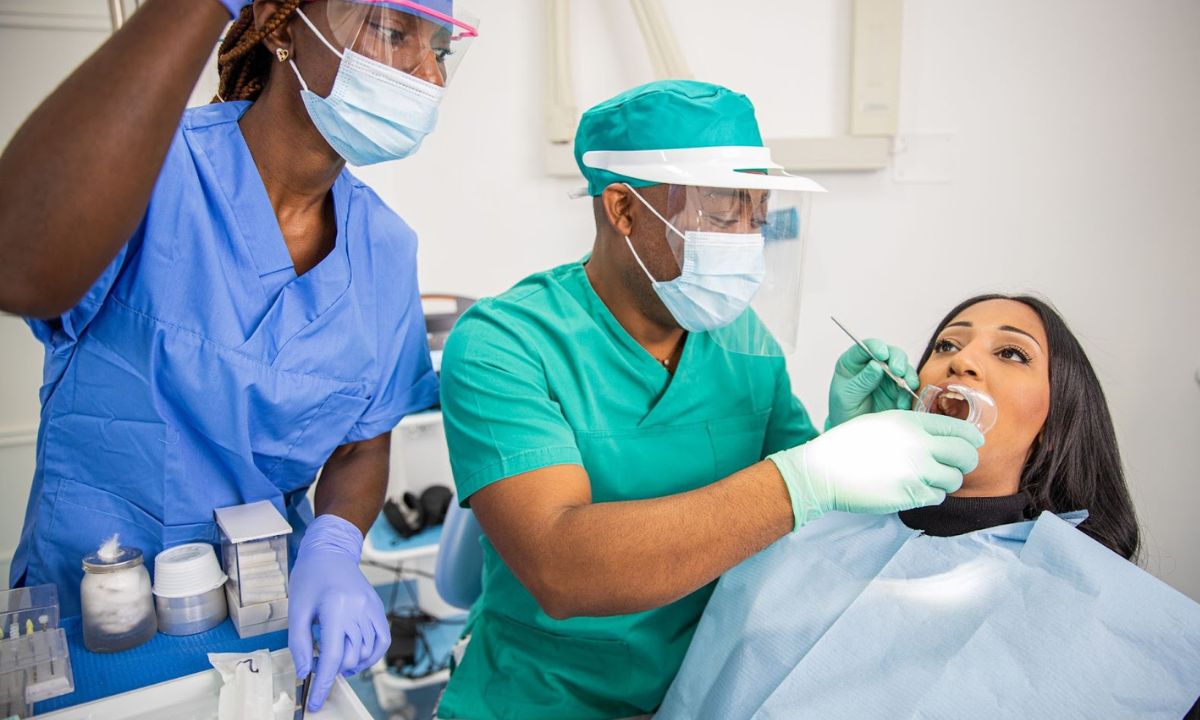Selecting the right periodontist is a crucial decision for maintaining optimal oral health, especially if you’re facing issues related to gum disease or need advanced dental care. We will explore the essential factors to consider when choosing a periodontist, ensuring you make an informed choice tailored to your needs. We will help you select a periodontist who can provide the necessary care and support for your oral health journey.
Assessing Qualifications and Credentials
When choosing a periodontist, evaluating their qualifications and credentials is essential. Start by verifying their educational background and training. Periodontists should have completed a dental degree followed by a specialized residency in periodontology. This additional training equips them with advanced knowledge and skills in managing gum diseases and performing procedures such as dental implants. It’s also beneficial to check if the periodontist is board-certified, as this indicates they have met rigorous standards and adhere to the latest practices in the field. Look for additional certifications or memberships in professional organizations, which can further reflect their commitment to continuing education and staying updated with advancements in periodontal care.
Evaluating Experience and Clinical Practice
Experience plays a significant role in the quality of care a periodontist provides. Consider the number of years the periodontist has been practicing and their specific expertise in handling cases similar to yours. Experienced periodontists are often more adept at diagnosing and treating complex conditions, as they have encountered many scenarios throughout their careers. It can be helpful to ask about their experience with the specific procedures you may need, such as scaling and root planing or surgical interventions. Additionally, reading patient reviews and testimonials can provide insights into their clinical practice and patient satisfaction. However, ensure that the feedback is recent and relevant to get an accurate representation of their current practice.
Assessing Communication and Comfort
Effective communication and a comfortable rapport with your periodontist are critical for a positive treatment experience. During your initial consultation, assess how well the periodontist listens to your concerns and explains the treatment options. They should be able to articulate the procedures, potential outcomes, and any risks involved clearly and thoroughly. A good periodontist will take the time to address your questions and make sure you fully understand your treatment plan. Additionally, the overall atmosphere of the practice should be evaluated. A welcoming and supportive environment can significantly enhance your comfort and reduce any anxiety associated with dental treatments. Feeling at ease with your periodontist is essential for a successful treatment journey.
Examining the Facility and Technology
The facility where the periodontist practices can influence the quality of care you receive. Visit the office to assess its cleanliness, organization, and overall environment. Modern dental practices should have up-to-date technology and equipment to ensure accurate diagnosis and effective treatment. Digital X-rays, laser treatments, and advanced diagnostic tools can improve outcomes and make treatment more efficient. Additionally, inquire about the sterilization protocols and infection control measures in place. A well-maintained and technologically advanced facility reflects a commitment to providing high-quality care and ensuring patient safety.
Considering Insurance and Payment Options
Understanding the financial aspects of periodontal care is crucial when selecting a periodontist. Check if the periodontist accepts your insurance plan or offers payment plans and financing options. Periodontal treatments can sometimes be costly, so having clarity on what your insurance covers and what out-of-pocket expenses you may incur is important. Some periodontists offer flexible payment plans or work with third-party financing companies to help manage treatment costs. Discussing these financial aspects upfront can help avoid surprises and ensure you are comfortable with the financial arrangements before beginning treatment.
Seeking Recommendations and Reviews
Personal recommendations and reviews from others can provide valuable insights into a periodontist’s practice. Ask your general dentist for a referral, as they can recommend a periodontist based on their professional network and knowledge of your specific needs. Additionally, seek feedback from friends, family, or colleagues who may have had experience with periodontists. Online reviews and ratings can also be helpful, but it’s important to consider them in the context of other factors. While reviews can offer a glimpse into patient experiences, they should be balanced with your own research and evaluation to make a well-rounded decision.
Making the Final Decision
After gathering all the necessary information, take some time to weigh your options and make an informed decision. Consider the qualifications, experience, communication style, facility, and financial aspects of each periodontist you are considering. Reflect on your initial impressions and how comfortable you felt during your consultations. Choosing the right periodontist is a personal decision that should align with your specific needs and preferences. Trust your instincts and select a periodontist who meets your professional requirements and makes you feel valued and cared for throughout your treatment journey.
Choosing the right periodontist involves carefully considering various factors to ensure you receive the best care. By evaluating qualifications, experience, communication, facility conditions, and financial options and seeking recommendations, you can make an informed decision tailored to your needs. Remember, the right periodontist will provide effective treatment and a supportive and comfortable experience throughout your oral health journey. Taking the time to research and choose wisely thoroughly will contribute significantly to achieving and maintaining optimal periodontal health.












